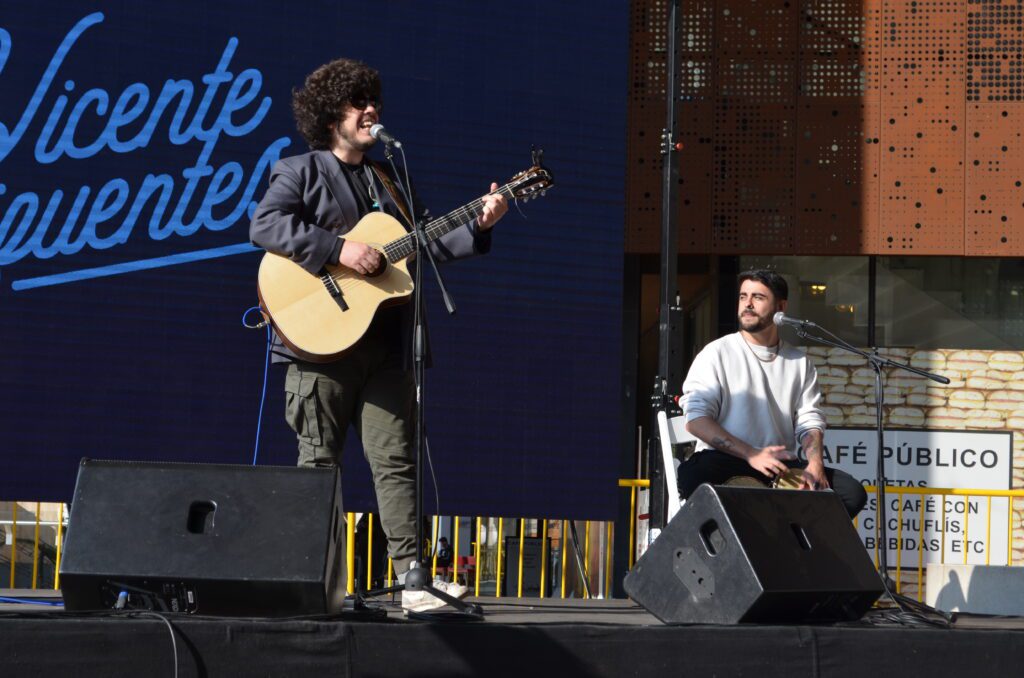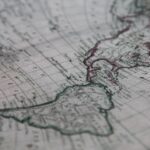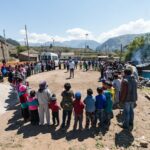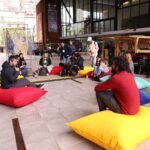- October 14, 2022
- Benjamin Pino
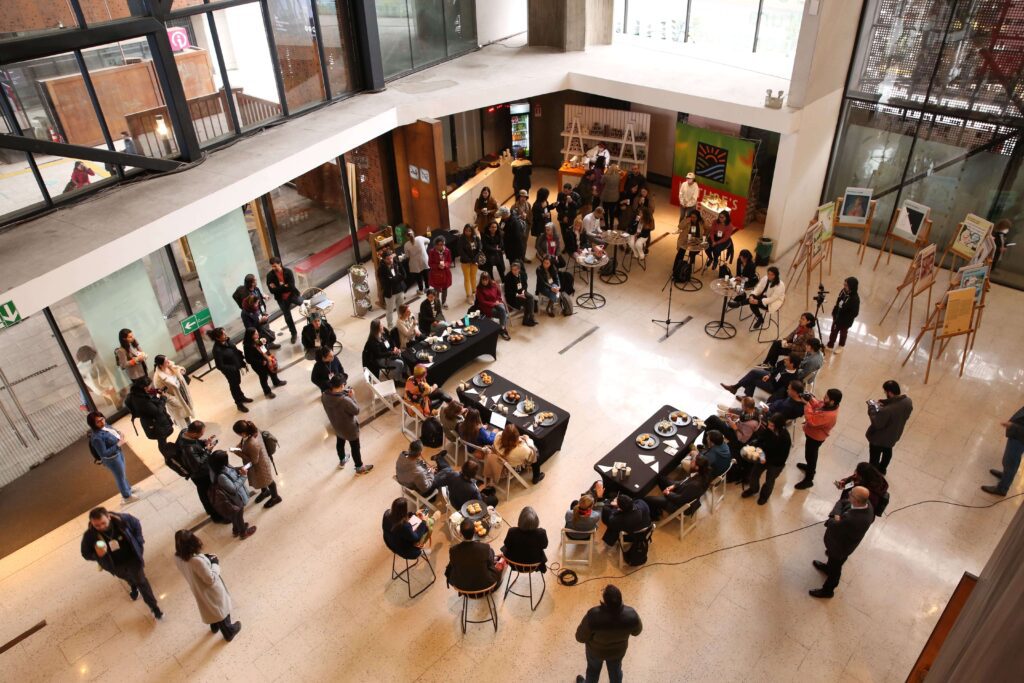
Economy, environment and housing: this was the closing of the Hola America Festival
The Hola America Festival, promoted by the 2811 platform and Ashoka, was attended by more than 300 people on its second day. It was an opportunity to discuss the environment, public policies and the importance of collaborative work to work in a more empathetic and accurate way in all situations experienced by migrants.
The last day of the Latin American meeting on social innovation included spaces for dialogue between different actors from governments, municipalities, academics and representatives of migrant organizations.
The kick-off was the HR Exchange Agency panel, where various models for migrants to deal with the financial complications that arise when arriving in another country were discussed. The speakers talked about the organizations they represent and their contributions in this area.
This was followed by the panel ” Importance of innovating from the public sector: reflections on regularization“, where Vicenzo Pensa -Venezuelan, vice-president of the Argentine Federation of Collectivities-assured that “for changes in migratory issues, we need spaces for collaboration with all public and private organizations”.
Another block discussed a question: “How to include migrants in the financial sector“. Eduardo Hamel, Founder of Refer; Karina Gomez, Commercial and Social Manager at Fondo Esperanza; Maximiliano Selva, Partner-founder of Estacubierto.com and Diego Fleischmann, Founder of Migrante contributed their considerations.
Fleischmann pointed out that elements such as a credit or the validation of a degree “change the reality of many people” to the point of transforming their daily lives. Selva stressed the importance of listening to the needs and concerns of migrants, and said that many of them want to become entrepreneurs.
Other mobilization realities
“Urban planning is not thinking about migration and even less about environmental mobilizations. In many countries it is not yet thought that environmental migration will be part of the future,” said Susanne Melde, Regional Knowledge Management Officer at IOM – UN Migration, on the panel Climate change as a factor of displacement .
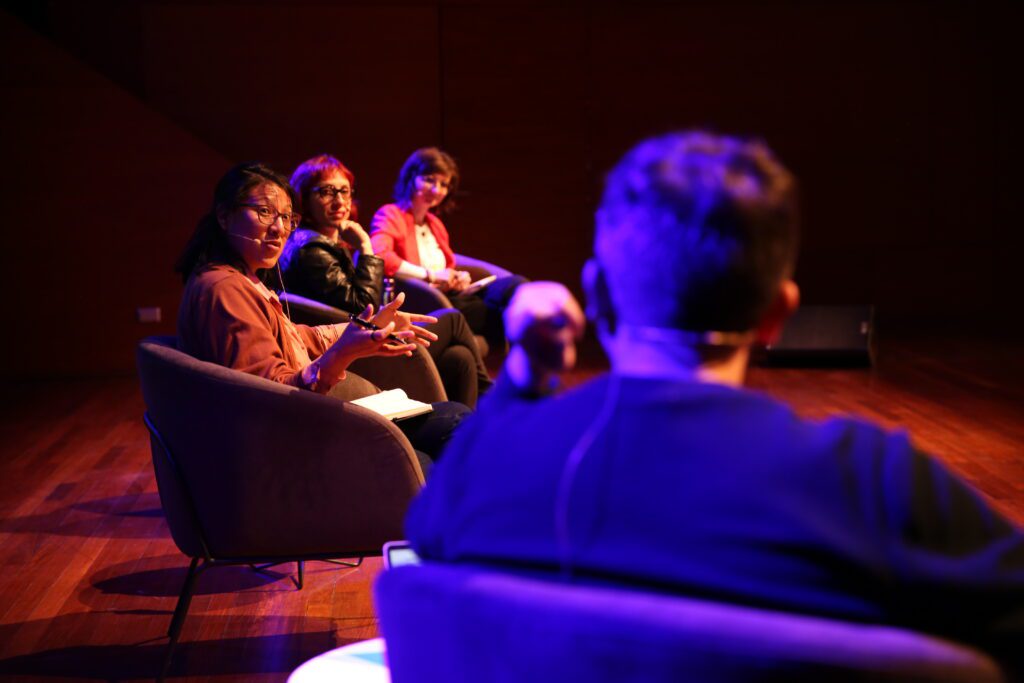
Suzanne, María José Jarpa, creator of the Desterrados del Agua project, and Zenaida Lauda-Rodríguez, researcher at RESAMA – South American Network for Environmental Migrations, agreed that it is important to develop more journalistic projects linked to climate change migration research.
They also emphasized the need to open more spaces to understand the implications of environmental migrations and the need for collective capacity building to find the best solutions to the challenges posed by climate change.
In his masterclass, the expert from Servicio Jesuita a Migrantes (SJM) Chile, Juan Pablo González, also proposed to pay attention to migration due to climate crisis, since few institutions and states have addressed this issue that will have an impact on our society.
“There is a fallacy where it is believed that society is not dynamic: that there is a certain amount of work,” said Juan Pablo González, in relation to the impact of migration on our culture. He also spoke about crime, labor and children, using data to debunk myths associated with the communities arriving in our country.
“Everyone has a role to play,” said Patricia Roa, programming officer at ILO, on the panel of Work and migration? Challenges and answers. The event dealt with the obstacles faced by migrants who have gone through studies when faced with Chilean labor laws, debts in terms of wages and decent working hours.
Also participating in this talk were Jessica Marín of the Los Arenales Intercultural Labor Cooperative, Pamela Ríos, AVINA program manager, Pablo Bobic, CPC legal manager, Gonzalo Mercado-Cisterna, director of transnational initiatives at National Day Laborer Organizing, and Eduardo Soto of Chile Valora.
“We know that almost 50% of the commune of Santiago are migrants, and so we need to work together to understand their needs,” Olivares said at the Hola America Festival.
Nicolás Reyes, Education Sector Officer UNESCO Quito, highlighted the relevance of intercultural and pluri-nationalities within the world of education to make effective the process of inclusion of children.
Reyes said that in Ecuador they ensure the access of minors to the system and work for their permanence. “Let’s not talk about inclusion as an abstract term, but about transforming spaces to make it effective,” he said.
The mayor of Independencia, Gonzalo Durán, participated in housing issues, stating that “the role of the State is not only to guarantee the right to own housing. I believe that the debate must be made more complex, understanding that access to housing has several considerations to be redefined”.
The mayor added that in Independencia “currently the square meter of land costs 50 UF and the State invests in social housing when the value of the square meter is close to 5 UF. That is why we have to think of our own in other ways to guarantee better leasing opportunities, and there is also the need to generate land banks” .
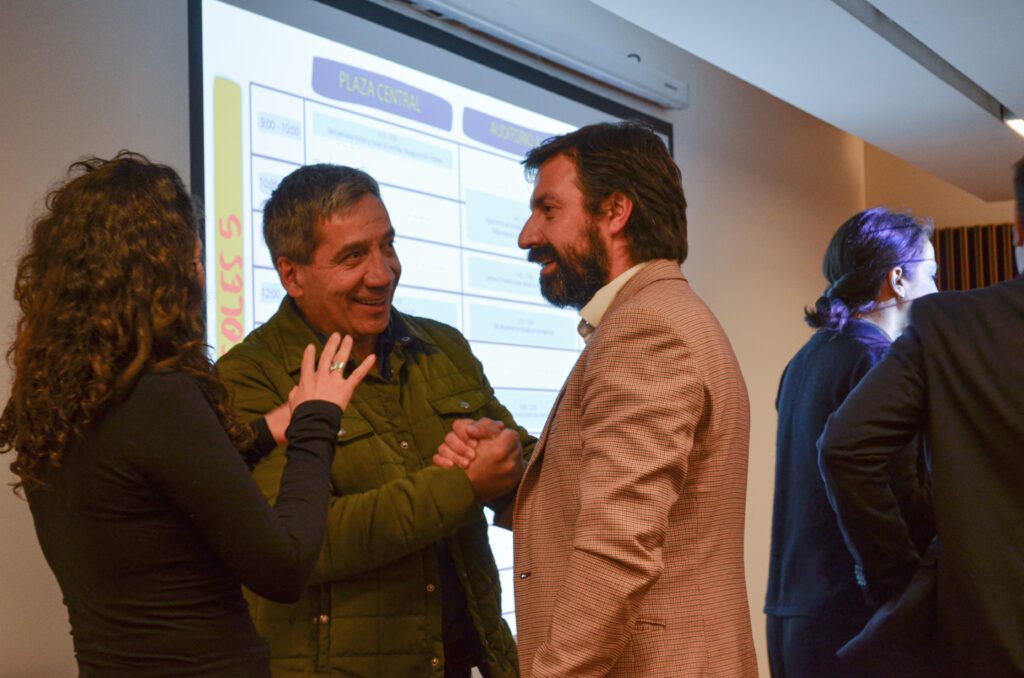
The best of stories of change
In the central square of GAM, several agents of change shared exciting stories with the audience of the Hola America Festival. Below are excerpts from each:
In the voice of Farlen Blanco we learned about Innovamig, an initiative promoted by IOM Costa Rica in collaboration with governments, municipalities and organizations of the first sector. Innovaming has enabled the creation of projects that prepare young people for job interviews and applications to develop practical skills, supported by the School of Psychology.
Looking to get out of his comfort zone, engineer Gabriel Marcolongo discovered the reality of people with disabilities and the constant rejection they received. For this reason, he created the organization Inclúyeme.com, where they connect their members with companies that wish to activate an inclusion program, always focused on people’s capabilities and not on their limitations. It is currently the largest organization working with disabilities in Latin America.
Alex Brahim, from the El Pilar Foundation, said that their mission is to turn Cúcuta, Colombia, into a place of integration between the coffee-growing country and Venezuela, a place of binational twinning independent of the relations that exist between the governments.
“When I came to Chile to apply for a job as a psychologist I was told that everything I had on my resume was not real in this new place.” Because of this, Rosmery Hernandez of Minutos de Bienestar had to dedicate herself to garzonear until her coworkers ended up doing therapy with her by chance. “I realized that no one migrant story is similar to another but they all share the missing. We were all bad but we were laughing.”
When Aura Cerón migrated, her career was not recognized and she lost her source of income. Then she discovered that to migrate was to change, so she studied narrative and storytelling. Now, through Auracarabra, she has been able to tell her personal story and tell her son about Mexican culture. “The important thing is not to be alone, we have to react and work so that the people who come after us have an easier experience.”
The closing of the day was in charge of the musician Vicente Cifuentes -who lived 10 years in the Dominican Republic- who filled the central square of the GAM with joy and rhythm for the successful closing of the first version of the Hola América Festival.
